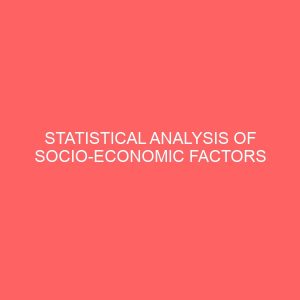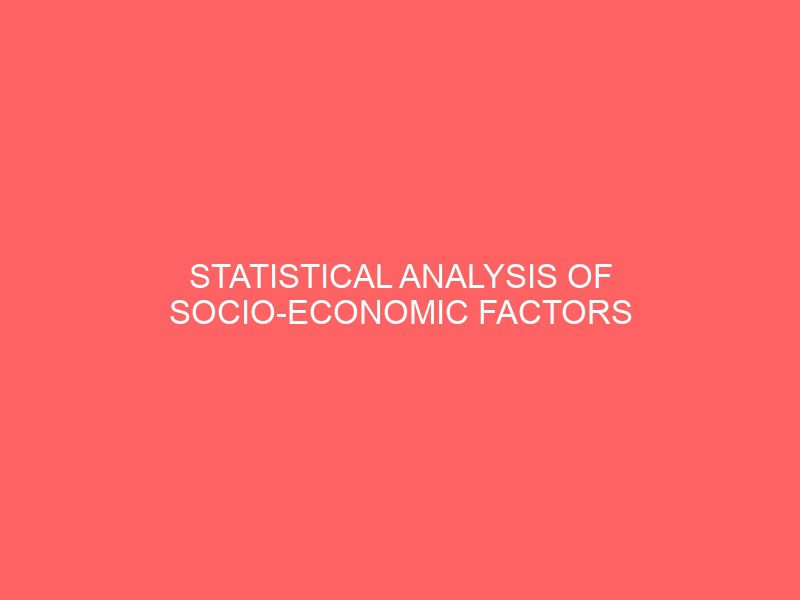Description
Abstract
This project looks at Statistical analysis of socio-economic factors affecting women fertility in Nigeria. In this study, some socio-economic factors affecting the fertility rate of women in the society were examined. These factors include the age of women, level of education, place of residence and female force participation. The data used in this study were sourced from a field survey using a structured questionnaire. The data were analyzed using multiple logistic regression analysis. The estimated model reported that on an average, the expected number of children to be born by each woman is 2. However, the influence of the age of women will increase fertility level by 0.079 units, the place of residents will reduce fertility by 0.692 units when they live in the urban area. In essence, if the women reside in the village setting, their fertility is expected to be high if other variables in the model are held constant. The education status of women reported to have a negative relationship with the fertility rate among women and fertility rate of women will decrease if they are engaged in labour force. In addition, the educational status of women has times 4 the odds of affecting the fertility rate among women than their age, occupation and place of resident. Conclusively, of all the socioeconomic determinants examined, the most efficient of them all in reducing fertility levels is by increasing the education level of women.








Reviews
There are no reviews yet.